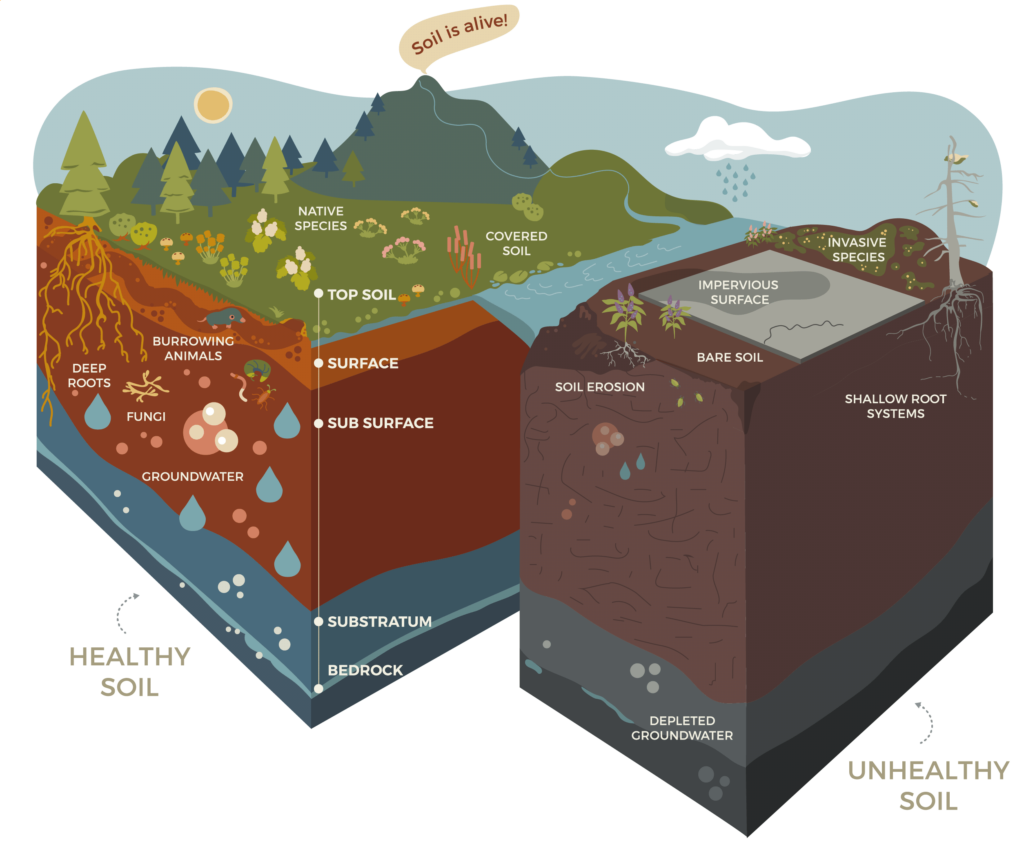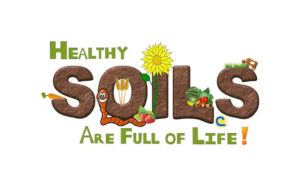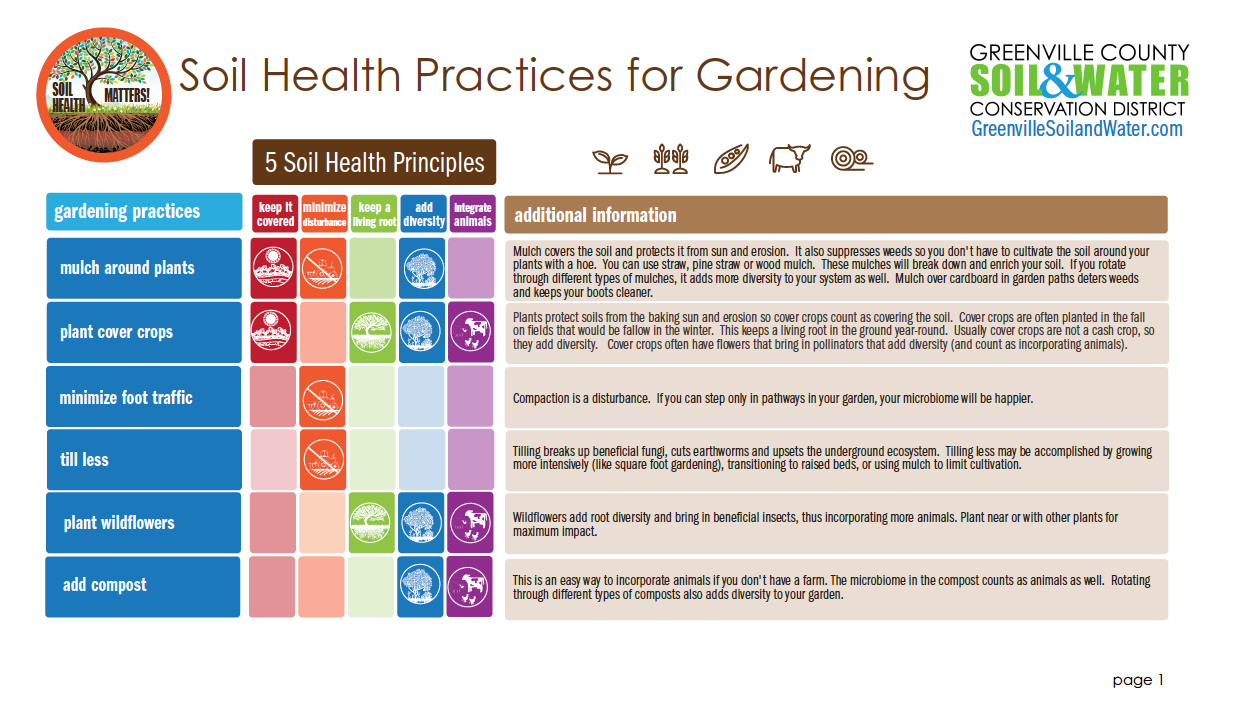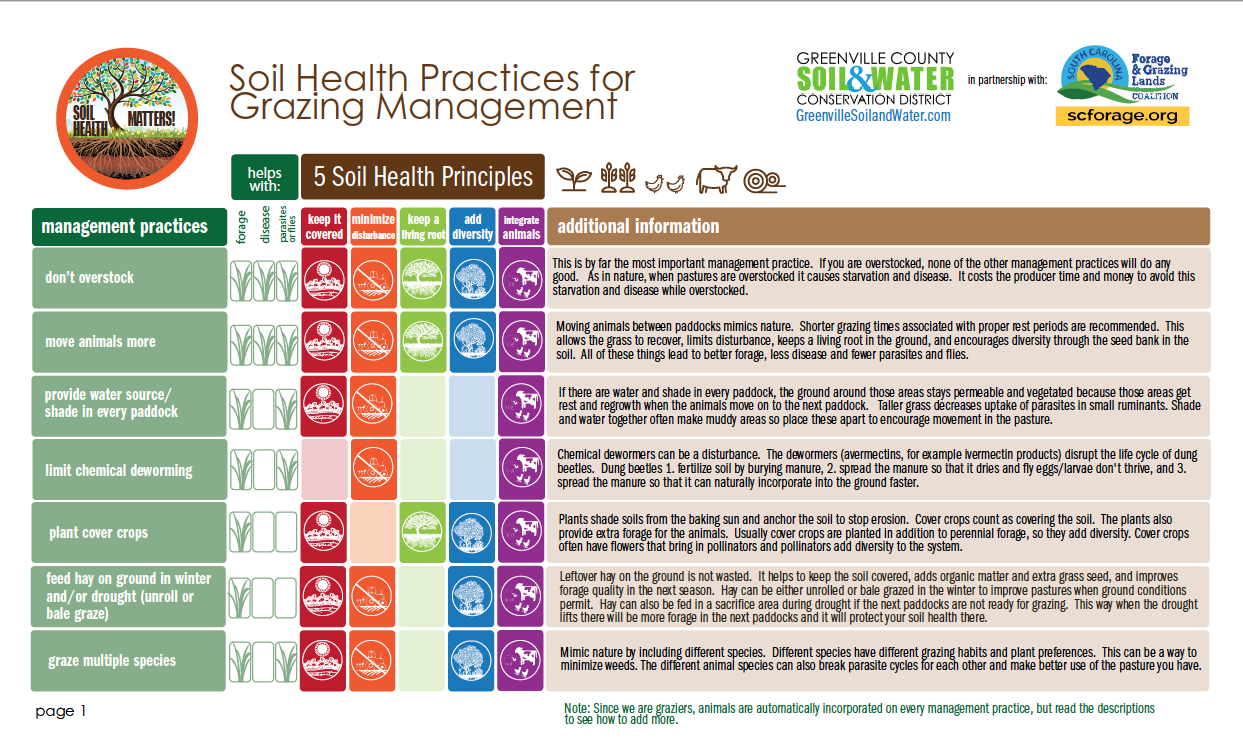Why Healthy Soil is a Priority
Soil is more than just a medium for growing your plants – it has a life of its own! Each scoop of soil contains millions of microbes that keep the tiny ecosystem functioning, which is essential for growing food and creating living landscapes. When we think about soil as a living system, we can better understand how its health can change based on how we treat it.
Soil health plays a major role in the health of all living organisms. We need to care for the soil in our landscapes, just as we care for plants, animals, and other humans, for it to function properly. It is important to consider ways to protect and boost your soil when planning for your farm, landscape, garden, or flower bed.
Maintaining healthy soil benefits your landscape by:
- Reducing soil erosion and providing stability for plant roots and human structures.
- Supporting plant and animal growth by providing easy access to air, water, and nutrients.
- Absorbing water and directing it to plant roots and groundwater.
- Filtering pollutants and capturing chemicals before they reach groundwater.
HEALTHY SOIL VS. UNHEALTHY SOIL
Graphics courtesy Tualatin Soil and Water Conservation District
LEARN MORE ABOUT SOIL
 We can look at physical, chemical, and biological characteristics to get a sense of how the soil is functioning. Basic soil tests, like those that assess texture or measure water drainage, can be done in your yard, your field, or the classroom. In-depth chemical analyses can be completed by sending samples to soil labs.
We can look at physical, chemical, and biological characteristics to get a sense of how the soil is functioning. Basic soil tests, like those that assess texture or measure water drainage, can be done in your yard, your field, or the classroom. In-depth chemical analyses can be completed by sending samples to soil labs.
Soil testing at Clemson Extension





